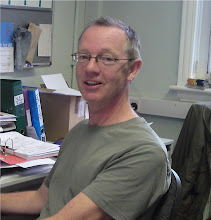
Sonia is away performing in Colchester today, so Richard and I are here, carrying on and looking at his side – the poetry side of things.
The motivation behind this project is the National Trust’s desire to get more people from Black and Asian back grounds to come to, and enjoy, National Trust properties.
There is a whole drive to establish points of cultural contact and uncover stories of cross cultural exchange in relation to the houses, the families who lived there and their histories. This house is relatively new (in National Trust terms – only 110 years old), it was built by the Manders – local Wolverhampton industrialists, who made their money by building up their paint and varnish business from scratch over a long period.
It isn’t built on slave money, it isn’t inherited wealth. The Manders that built this house were very concerned with social progress, creating good working conditions for their workforce, treating them fairly. Geoffrey Mander, whilst on Wolverhampton Council fought for and introduced the first minimum wage for council employees in the borough. He negotiated with Ernest Bevin to introduce the 40 hour week into his factories, without a loss of pay – or productivity. As an MP he was deeply interested in foreign affairs, he asked questions in the House of Commons for Haille Selassie about the British attitude to the Italian invasion of Abyssinia. He was one of the first MP’s to question the appeasement of Hitler. His two brothers, Lionel and Alan, married two Indian princesses.
All in all, a good place to be running a project like this, until you come across passages like this in your research:
‘Geoffrey Mander, for all the liberal brownie points he earned for his stance on appeasement and workers rights, had less than enlightened views on his sister-in-law. He had a problem with her being black. At one dinner party he said to Alan, “I don’t know how you can put your arms around that woman.” ‘
As Sonia said, “Oh Geoffrey!”
But as Richard pointed out, why are we surprised that at the height of Empire, he had those opinions, and isn’t it easy to look back and view someone with our own value system and impose it on them? If it was me, would I have been any different?
Today Richard and I had a long and complex debate about relative values, race, Britishness, belonging (and what that means in a place like Wightwick – do I, from my background, feel any more at home in Wightwick than him?).
But Wightwick is a part of both of our shared view of our British heritage – if we had visitors from abroad, it is the kind of place we would bring them to as an example of Britishness. In that sense we both feel like we own it.
Richard will continue his response through his poetry…
The motivation behind this project is the National Trust’s desire to get more people from Black and Asian back grounds to come to, and enjoy, National Trust properties.
There is a whole drive to establish points of cultural contact and uncover stories of cross cultural exchange in relation to the houses, the families who lived there and their histories. This house is relatively new (in National Trust terms – only 110 years old), it was built by the Manders – local Wolverhampton industrialists, who made their money by building up their paint and varnish business from scratch over a long period.
It isn’t built on slave money, it isn’t inherited wealth. The Manders that built this house were very concerned with social progress, creating good working conditions for their workforce, treating them fairly. Geoffrey Mander, whilst on Wolverhampton Council fought for and introduced the first minimum wage for council employees in the borough. He negotiated with Ernest Bevin to introduce the 40 hour week into his factories, without a loss of pay – or productivity. As an MP he was deeply interested in foreign affairs, he asked questions in the House of Commons for Haille Selassie about the British attitude to the Italian invasion of Abyssinia. He was one of the first MP’s to question the appeasement of Hitler. His two brothers, Lionel and Alan, married two Indian princesses.
All in all, a good place to be running a project like this, until you come across passages like this in your research:
‘Geoffrey Mander, for all the liberal brownie points he earned for his stance on appeasement and workers rights, had less than enlightened views on his sister-in-law. He had a problem with her being black. At one dinner party he said to Alan, “I don’t know how you can put your arms around that woman.” ‘
As Sonia said, “Oh Geoffrey!”
But as Richard pointed out, why are we surprised that at the height of Empire, he had those opinions, and isn’t it easy to look back and view someone with our own value system and impose it on them? If it was me, would I have been any different?
Today Richard and I had a long and complex debate about relative values, race, Britishness, belonging (and what that means in a place like Wightwick – do I, from my background, feel any more at home in Wightwick than him?).
But Wightwick is a part of both of our shared view of our British heritage – if we had visitors from abroad, it is the kind of place we would bring them to as an example of Britishness. In that sense we both feel like we own it.
Richard will continue his response through his poetry…




No comments:
Post a Comment